Is academic freedom in peril?
Faculty punishments are on the rise

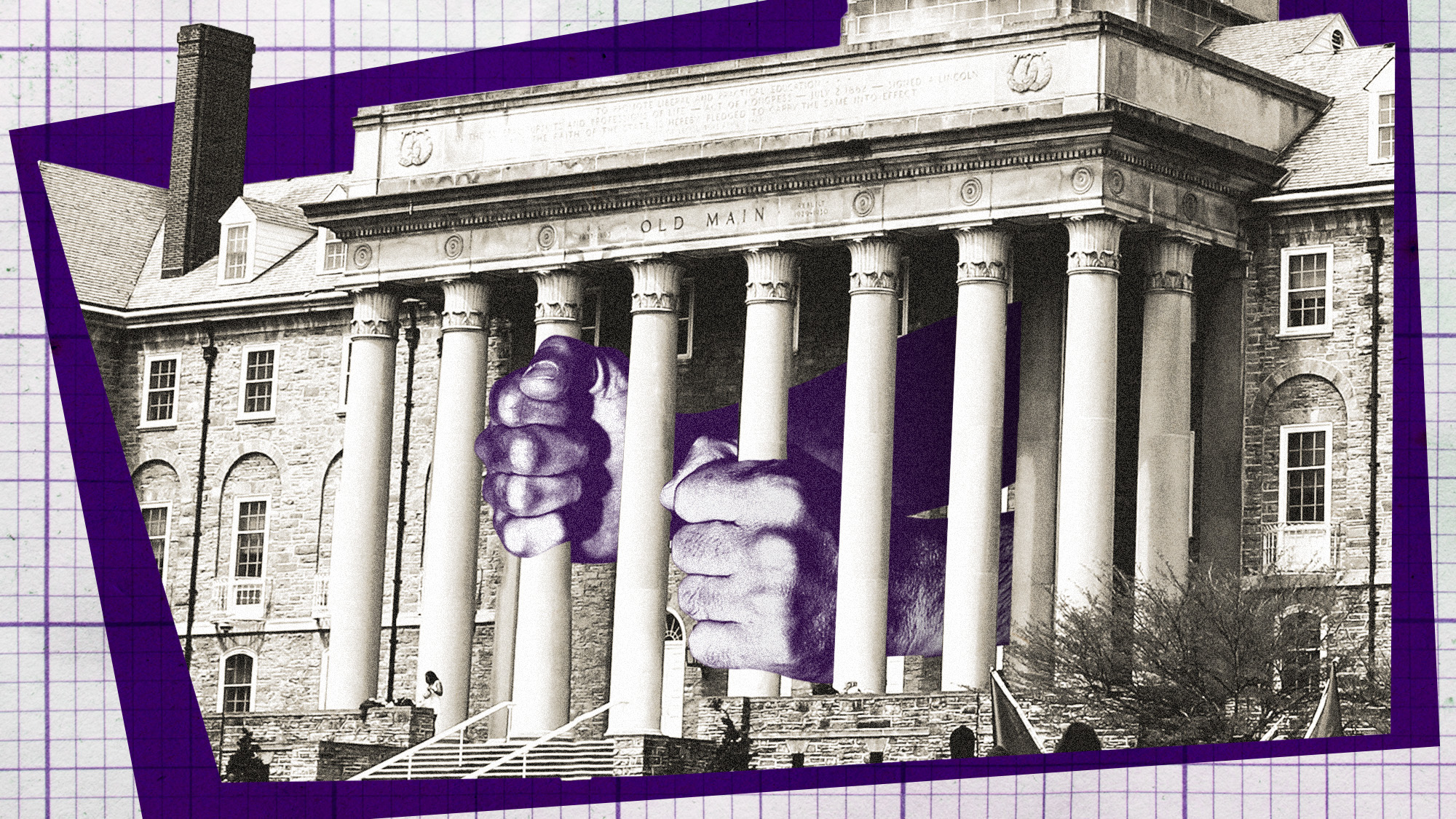
A free daily email with the biggest news stories of the day – and the best features from TheWeek.com
You are now subscribed
Your newsletter sign-up was successful
A pillar of university life: Academic freedom. It's a principle that gives professors and students wide leeway to freely explore and express ideas without fear of losing their jobs or being penalized. And it may be in danger.
The year-old war between Israel and Gaza has sparked fears of a "growing assault on the ideals of academic freedom," said The New York Times. Pro-Palestinian instructors have had contracts and classes canceled, while acts of faculty discipline have been on the rise. It's part of an effort to "ensure that students feel safe on campus," the Times said. Some instructors are accused of "creating hostile environments in classrooms." But faculty are newly fearful of a "chill in the air," said Peter Lake of the Center for Excellence in Higher Education Law and Policy.
On the other side of the political spectrum, law professor Amy Wax last month received a yearlong suspension from the University of Pennsylvania, said The Associated Press. Wax has "questioned the academic performance of Black students," among other alleged offenses, leading the university to declare she had engaged in "flagrant unprofessional conduct." Academic freedom is important, said Penn's provost, but professors must practice a "willingness to assess all students fairly."
The Week
Escape your echo chamber. Get the facts behind the news, plus analysis from multiple perspectives.

Sign up for The Week's Free Newsletters
From our morning news briefing to a weekly Good News Newsletter, get the best of The Week delivered directly to your inbox.
From our morning news briefing to a weekly Good News Newsletter, get the best of The Week delivered directly to your inbox.
What did the commentators say?
Academic freedom "comes with special responsibilities," Assumption University's Greg Weiner said at The Wall Street Journal. But campus activists treat the concept as a "special entitlement" to pursue political goals "free from consequences." Academic freedom is supposed to encourage the "pursuit of truth," Weiner said, while political sloganeering can "reduce complicated issues to slogans." That's different. Pursuing truth "alone justifies university education."
Penn's Amy Wax has been "stunningly numb to compassion, courtesy and sometimes even to coherence," John McWhorter said at The New York Times. But her punishment is "egregious." That's because the ideals of free speech "means living with the discomfort" that offensive opinions can cause. Yes, Wax's ideas are "repellent," McWhorter said. "This does not justify punishing her for expressing them."
What next?
The battle is underway at Harvard. The university recently punished 25 faculty members who participated in a silent "study-in" in support of pro-Palestine protesters at Harvard's Widener Library, said The Harvard Crimson. The faculty were suspended from entering for two weeks — a decision that "appears to be unprecedented," said the Crimson. Members of Harvard's American Association of University Professors chapter called the suspensions "disturbing." But the university is setting boundaries on activism, said the head of Harvard's library system. The library is "not intended to be used as a venue for a group action, quiet or otherwise, to capture people's attention."
The presidential election could shape what happens next on college campuses, said Inside Higher Ed. Jeremy Young, director of PEN America's Freedom to Learn program, said his organization has tracked a "shift toward restricting universities' autonomy," including laws governing curricula and cracking down on diversity, equity and inclusion programs. The election outcome could result in a "push to nationalize some of these restrictions," Young said. A stronger case needs to be made to voters and taxpayers that they benefit from allowing universities to be a "place of intellectual freedom."
A free daily email with the biggest news stories of the day – and the best features from TheWeek.com
Joel Mathis is a writer with 30 years of newspaper and online journalism experience. His work also regularly appears in National Geographic and The Kansas City Star. His awards include best online commentary at the Online News Association and (twice) at the City and Regional Magazine Association.
-
 Sepsis ‘breakthrough’: the world’s first targeted treatment?
Sepsis ‘breakthrough’: the world’s first targeted treatment?The Explainer New drug could reverse effects of sepsis, rather than trying to treat infection with antibiotics
-
 James Van Der Beek obituary: fresh-faced Dawson’s Creek star
James Van Der Beek obituary: fresh-faced Dawson’s Creek starIn The Spotlight Van Der Beek fronted one of the most successful teen dramas of the 90s – but his Dawson fame proved a double-edged sword
-
 Is Andrew’s arrest the end for the monarchy?
Is Andrew’s arrest the end for the monarchy?Today's Big Question The King has distanced the Royal Family from his disgraced brother but a ‘fit of revolutionary disgust’ could still wipe them out
-
 American universities are losing ground to their foreign counterparts
American universities are losing ground to their foreign counterpartsThe Explainer While Harvard is still near the top, other colleges have slipped
-
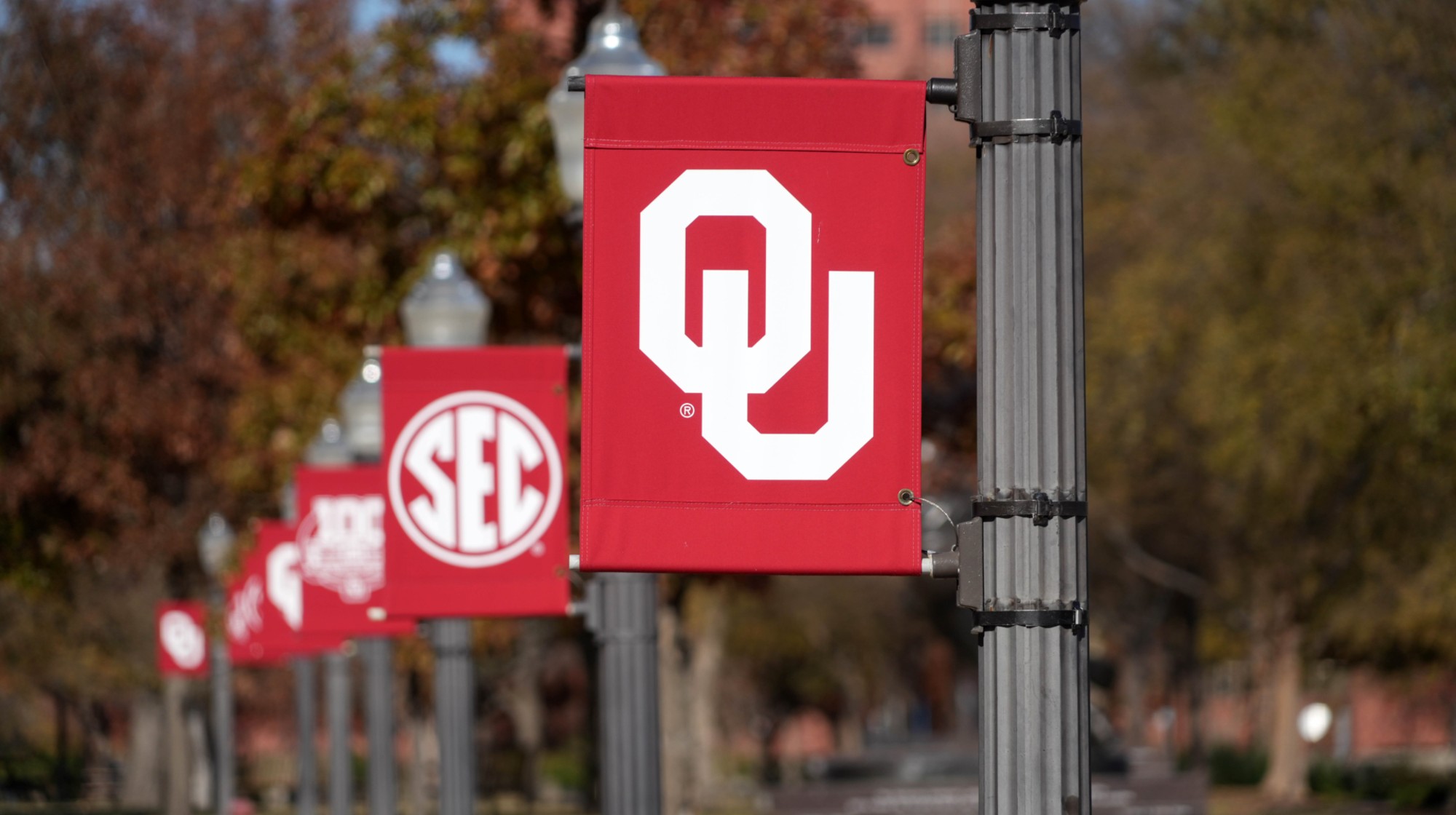 Oklahoma fires instructor over gender essay grade
Oklahoma fires instructor over gender essay gradeSpeed Read
-
 Education: More Americans say college isn’t worth it
Education: More Americans say college isn’t worth itfeature College is costly and job prospects are vanishing
-
 Penn wipes trans swimmer records in deal with Trump
Penn wipes trans swimmer records in deal with Trumpspeed read The University of Pennsylvania will bar transgender students from its women's sports teams and retroactively strip a trans female swimmer of her titles
-
 Where will international students go if not the US?
Where will international students go if not the US?Talking Points China, Canada and the UK are ready to educate the world
-
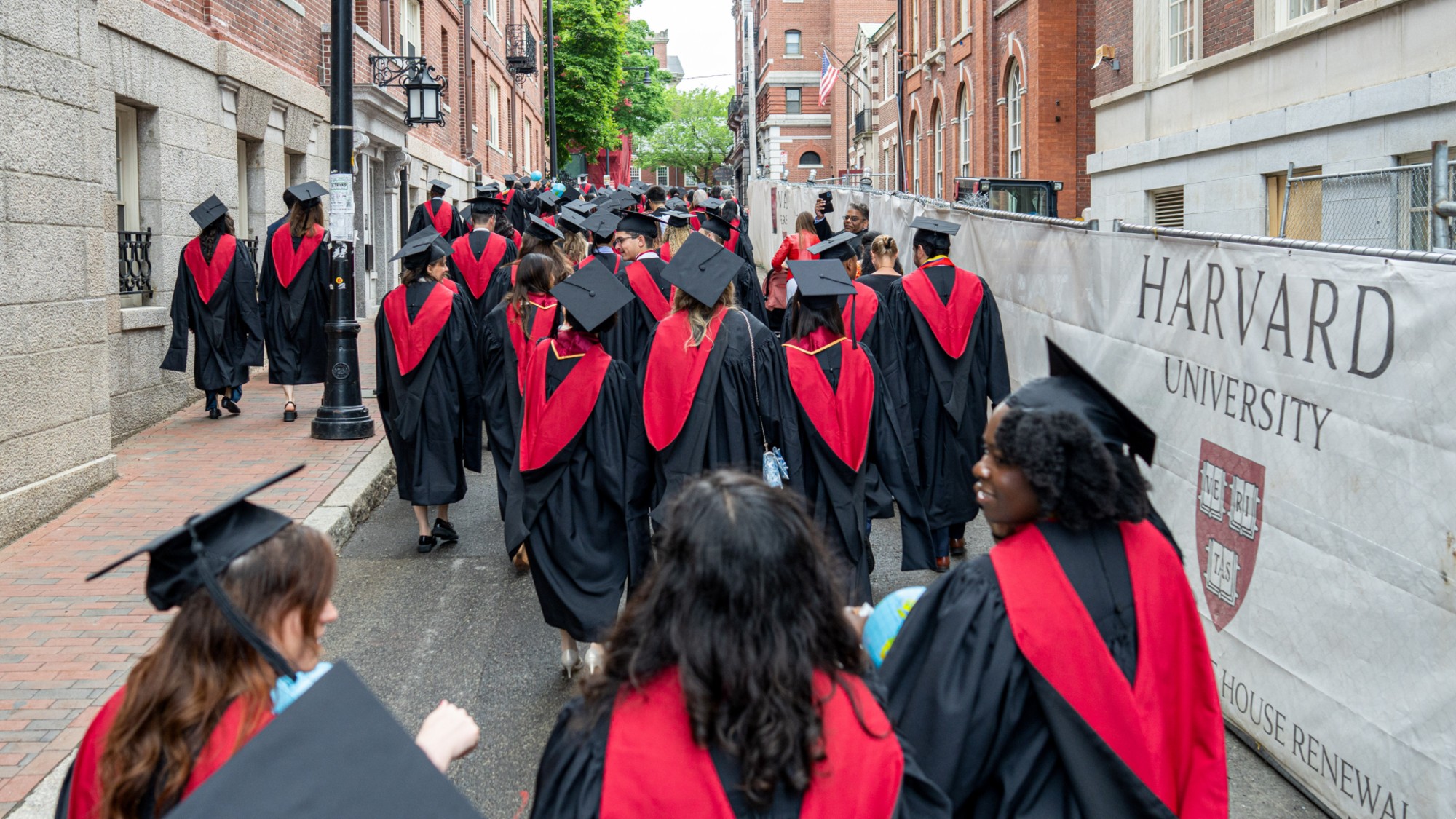 Colleges are canceling affinity graduations amid DEI attacks but students are pressing on
Colleges are canceling affinity graduations amid DEI attacks but students are pressing onIn the Spotlight The commencement at Harvard University was in the news, but other colleges are also taking action
-
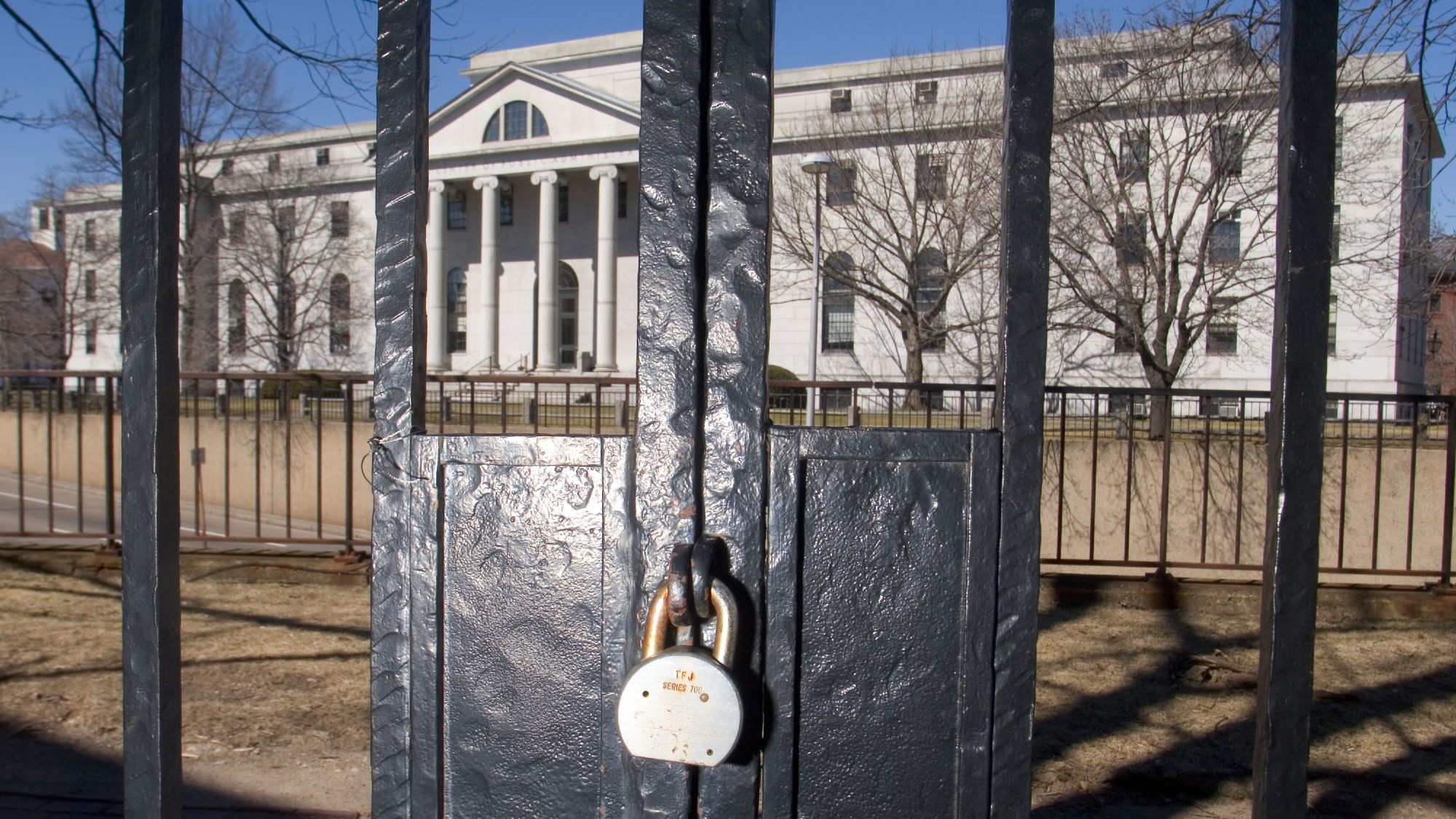 Can Trump ban overseas students from US universities?
Can Trump ban overseas students from US universities?Today's Big Question President's decision to revoke Harvard's access to database for admitting international students 'drastically escalates' the dispute
-
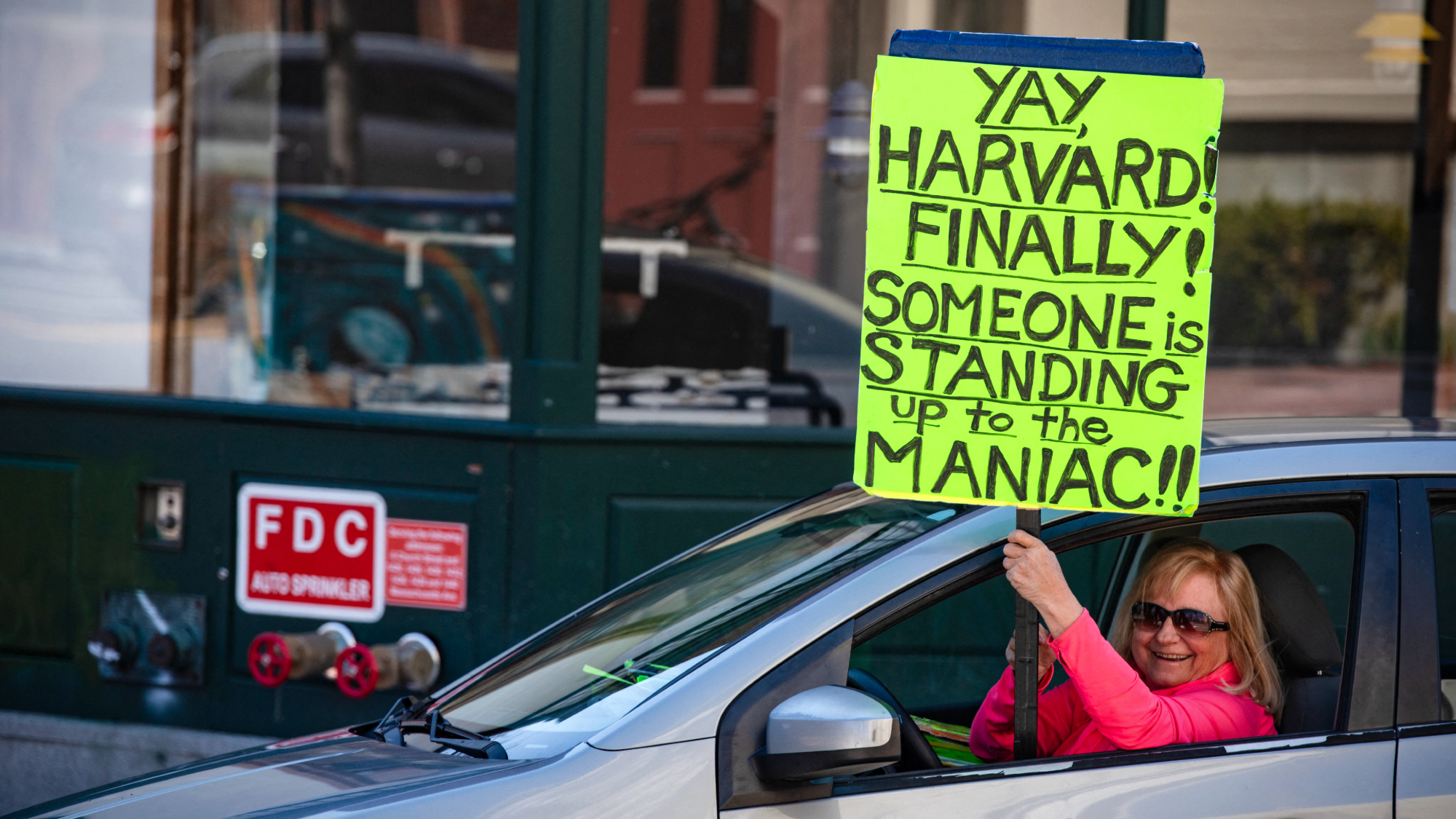 Harvard sues Trump over frozen grant money
Harvard sues Trump over frozen grant moneySpeed Read The Trump administration withheld $2.2 billion in federal grants and contracts after Harvard rejected its demands
